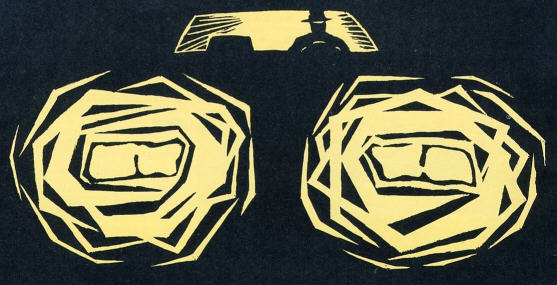Even if we think the horrors in the headlines will never happen to us, deep down there's a fear in all of us that hints that something is wrong.
Imagine you are driving alone on a desolate road at night, when suddenly the car's engine dies without a sputter. At first, perhaps you are preoccupied with the business of pulling over. finding the flashers, fiddling with the ignition key. But as your final curses fade, you realize that… Gee, it's awfully dark out here.

Armed with a flashlight, you slide from the car and open the hood. As you peer at the machinery, you hear the drone of an approaching car. Coming pretty slow, it seems. Looking for something? Then the headlights appear, washing you with a brightness nearly as unpleasant as the night. You wait as the car slows, pulling up beside you. And when you glance at the shadowy face of the driver, it seems your worst nightmare has come to life . . .
It would be nice to think that this scene will never progress further than your imagination, that looking up from the page removes you from danger. Yet every newspaper is littered with stories of horror inflicted on innocent persons like you and me. Real people, just driving home from work or school or Mom's birthday party. Real stories, with endings like rape, mutilation, and murder.
From one perspective, there is so much to fear. Yet this fear. however justified it appears, is only pervasive in conjunction with a particular state of consciousness. Ultimately, we fear the loss of our dearest possession our own body, the basis of our identity. Peel away the layers of trivial fears, and you'll find stark fear of death underlying them all. Dying simply means the expiration of the body. But when all our love and happiness depends upon that body, death signifies the end of existence. Certainly a frightening prospect.
But reality is different. The temporary body can be compared to a vehicle. The driver steps in and out of it without losing his true self. The true person, the real you, is spiritual an eternal being with full knowledge and limitless happiness. This self is forgotten when we identify with the physical body, and such distorted consciousness is aptly named "conditioned." We are conditioned by repeated lifetimes submerged in our bodily identities to view the world according to a narrow perspective: life begins with the birth of the body, is validated by the sensual experiences of the body, and ends with the body's demise. Fearfulness is rooted in this perception.
Srila Prabhupada explains while commenting on a verse in the Srimad-Bhagavatam (1.14.38):
Fearfulness is a sort of illusion for the living being when he is in slumber and forgetting his eternal relationship with the Lord. Since the living being is never to die by his constitution, as stated in Bhagavad-gita (2.20), then what is the cause of tearfulness? A person may be fearful of a tiger in a dream, but another man who is awake by his side sees no tiger there. The tiger is a myth for both of them, namely the person dreaming and the person awake, because actually there is no tiger; but the man forgetful of his awakened life is fearful, whereas the man who has not forgotten his position is not at all fearful.
Fear can be defeated by knowledge of the Supreme Lord and our dependent relationship with Him. A devotee is confident and fearless in this world, because even the prospect of death won't interrupt his vital exchange with his beloved Lord. His mind is always fixed on the merciful Supreme Lord, who has nothing to fear.
In further explanation of the same verse from Srimad-Bhagavatam. Srila Prabhupada concludes. "Thus the members of the Yadu dynasty [in which Krsna appeared] were fully awake in their service to the Lord, and therefore there was no tiger for them to be afraid of at any time. Even if there was a real tiger, the Lord was there to protect them."
The Lord is there to protect us, too.
